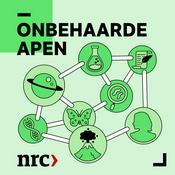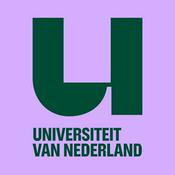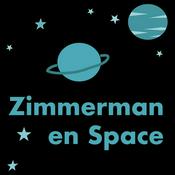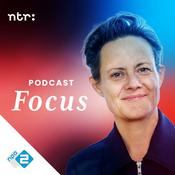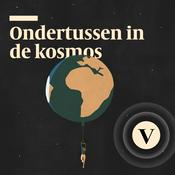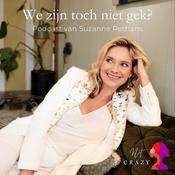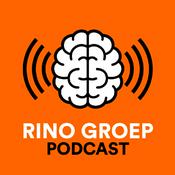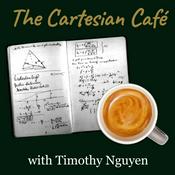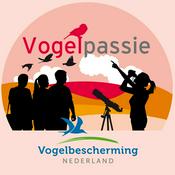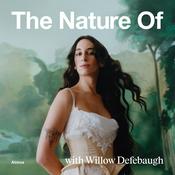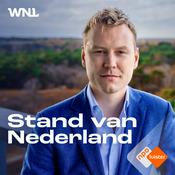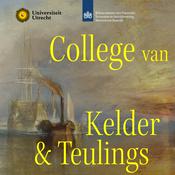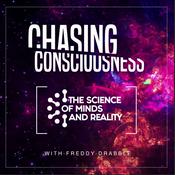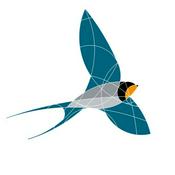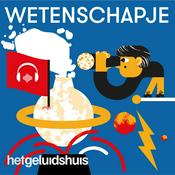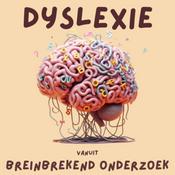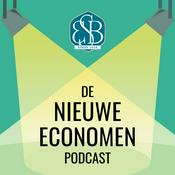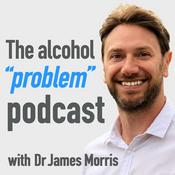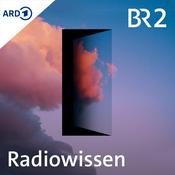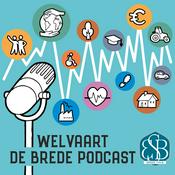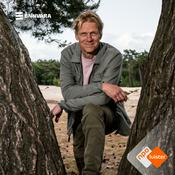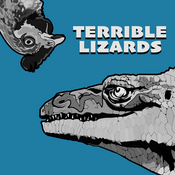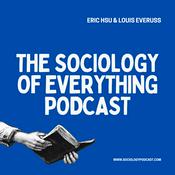18 afleveringen
- One of the constants in human life is that we work. We spend most of our adulthood doing it, so what do we need to know to promote a healthy work life? Our guest, prof. dr. Susanne Scheibe, professor of Organizational Psychology at the University of Groningen, investigates how people change throughout their working years, focusing on emotional development and stress in daily life. In this episode, we discuss human-centered work design, myths about aging, and how rapid technological changes are reshaping work. This conversation offers a valuable perspective that we hope can lead to healthier, more productive people and organizations. We hope you enjoy the episode.
What do we discuss?
01:43 Introduction to organisational science
12:00 Challenging vs. Hindering stressors
14:44 Ageing in your career - What's important in what stage of your career
21:55 Human-centered work
35:18 Ageism
41:40 Susanne's summary on work in society
For more on Susanne’s work at University of Groningen and Stress in Action, check out:
Stress in Action: https://stress-in-action.nl/susanne-scheibe/
University of Twente: https://www.rug.nl/staff/s.scheibe/
LeverAge COST European Network: https://leverage-workforce.eu/about/
Credits:
Host: Marcos Ross
Production: Anouk Weverling
Supported by: Myrte Schoenmakers, Artemis Stefani, Noa van Zwieten and Merel van den Berg
Music: Marcos Ross - Stress heeft vaak een negatieve connotatie, maar mensen hebben het ook nodig om goed te functioneren. Hoe iemand met stress omgaat en hoe veerkrachtig iemand is, verschilt sterk per persoon. In deze aflevering vertelt Lianne de Vries, assistant professor aan de Vrije Universiteit Amsterdam, over haar onderzoek naar stress, veerkracht, welbevinden en mentale gezondheid. Ze bestudeert zowel langdurige patronen als dagelijkse factoren, onder andere via Ecological Momentary Assessment (korte vragenlijstjes via de telefoon). Daarnaast onderzoekt ze sociale stress en individuele verschillen, onder meer met data uit het Nederlands Tweelingen Register, dat waardevol inzicht biedt in genetische en sociale factoren.
Waar hebben we het over?
(01:00) Welbevinden en veerkracht
(07:29) Mentale problemen op individueel niveau
(10:00) Omgeving en sociale stress
(13:50) Meetmethode: Ecological Momentary Assessment
(17:21) Genetica en het Nederlands Tweelingen Register
(21:18) Preventie mentale problematiek in dagelijks leven
Meer weten?
Onderzoek van Lianne de Vries aan de VU: https://vu.nl/nl/onderzoek/wetenschappers/lianne-de-vries
Nederlands Tweelingen Register: https://tweelingenregister.vu.nl/nl
EMA methode: https://stress-in-action.nl/mobile-mood-monitoring-in-young-people/
Podcast met Meike Bartels over welbevinden (in het Engels): https://open.spotify.com/episode/6XuKkzE2Vmd8lTTiJJ3a4f?si=-Kq936NIR7icl94RlhmJuQ
Ook interessant: blog over stress inoculatie (in het Engels): https://stress-in-action.nl/can-we-inoculate-children-for-a-healthy-stress-response/
Credits:
Host: Myrte Schoenmakers
Productie: Anouk Weverling
Redactie: Myrte Schoenmakers, Merel van den Berg, Noa van Zwieten
Muziek: Marcos Ross Behind the scenes of AI and Machine Learning in the health setting with Mark Hoogendoorn
18-11-2025 | 36 Min.In a world where our smartphones and wearables are gathering overwhelming amounts of data, how can we make use of them to better understand our health? This question is explored by our guest Dr. Mark Hoogendoorn, a professor of artificial intelligence at the Vrije Universiteit Amsterdam. An expert on machine learning, Mark discusses how this analytical method can be used in healthcare and the challenges that come with all this data (e.g., noisiness, explainability). Given that more and more people are using smartphones and wearables to track their health data, quantifying themselves like never before, Mark’s expertise is tremendously important. We hope you enjoy the episode.
What do we discuss?
Minute (2:24) Behind the Scenes of Machine Learning (ML) & Artificial Intelligence (AI) in the health setting
Minute (13:26) The hype around AI & ML
Minute (22:44) Applicability, gadgets and the quantified self in daily life
Minute (31:11) Accurate, reliable, and correct data
Interested in more?
‘Helping AI explain itself’ paper by Bülent Ündes on the explainability of complex models: https://stress-in-action.nl/helping-ai-explain-itself-faster-and-smarter-with-startgrad/
Machine Learning for the quantified self by Mark Hoogendoorn: https://www.bol.com/nl/nl/f/machine-learning-for-the-quantified-self/9200000084217477/
Mark's research at VU Amsterdam: https://research.vu.nl/en/persons/mark-hoogendoorn/
Credits:
Host: Marcos Ross
Supported by: Artemis Stefani, Myrte Schoenmakers, Noa van Zwieten, Merel van den Berg
Production: Anouk Weverling
Music: Marcos Ross- Wat ervaren mensen als stressvol in het dagelijks leven? In deze aflevering praat hoogleraar arbeid en gezondheid Ute Bültmann van het UMCG in Groningen ons bij over wat stress nu precies is. Letterlijk vertaald, betekent stress spanning of druk, maar in de wetenschap kijken we er net even anders naar: we onderscheiden stressoren en stressreacties. Daarbij speelt niet alleen de stressvolle situatie een rol, maar ook de context en jouw persoonlijke omgeving.
Daarnaast bespreken we waarom transdisciplinair onderzoek zo cruciaal is bij het doorgronden van stress. Bij dit type onderzoek is het erg belangrijk dat men openstaat voor het onbekende. Op die manier kun je gezamenlijk complexe vraagstukken onderzoeken. Dat doen Ute en collega's ook in het Stress in Action-project. Het is belangrijk dat onderzoekers veel samenkomen, gezamenlijk onderzoeksvragen definiëren, ideeën en kennis uitwisselen, goed naar elkaar luisteren, veel met elkaar in gesprek gaan en vragen aan elkaar stellen. Alleen samen kun je complexe vraagstukken écht begrijpen en aanpakken.
In dit gesprek duiken we dieper in de verschillende facetten en consequenties van stress en bespreken we hoe we zo'n complex onderwerp als stress bestuderen.
Waar hebben we het over?
a) Minuut (02:10) – Definities van stress
b) Minuut (07:00) – Stress in het dagelijks leven
c) Minuut (13:50) – Stressreacties en context
d) Minuut (16:52) – Transdisciplinair onderzoek
Meer te weten komen over Ute's onderzoek? Neem een kijkje op de volgende websites:
· Stress in Action: https://stress-in-action.nl/
· Research theme 1 met o.a. Malin Meyer en Alex Zirnheld: https://stress-in-action.nl/research-theme-1-stress-in-context/
· UMCG: https://umcgresearch.org/w/u-bultmann
Credits:
Host: Myrte Schoenmakers
Productie: Anouk Weverling en Merlijn van der Geer
Redactie: Myrte Schoenmakers, Merel van den Berg en Noa van Zwieten
Muziek: Marcos Ross - Stress is an umbrella term for many experiences we face in life. We intuitively know what it means but, at the same time, we don’t fully understand it. Is then the term ‘’stress” too vague to actually explain anything about health and disease? Stress is the leading cause of global burden on healthcare, so how can we better define and understand it? These questions are explored by our guest dr. Bertus Jeronimus, a clinical and developmental psychologist and researcher at the University of Groningen. As he is currently working on a theory of daily life stress, Bertus explains that precision is key to sort out all the aspects that make up the sometimes confusing concept of stress. We talk about the adaptive function of stress throughout life, the way stress is understood in different fields, and the role of personality types. We also examine the importance of how one interprets and handles stressful experiences (i.e., appraisal and coping). As always, a complex yet fascinating topic. We hope you enjoy it.
Highlights of the episode:
a) Minute (1:40) – Defining stress. The importance of doing so and its components.
b) Minute (12:45) – Being shaped by stress. Life course development.
c) Minute (21:58) – The history of the term stress.
d) Minute (26:45) – Stress is adaptive. The goldilocks zone, societal demands, and personality.
For more on Bertus’ work at University of Groningen and Stress in Action, check out:
Stress in Action: https://stress-in-action.nl/bertus-jeronimus/
University of Groningen: https://www.rug.nl/staff/b.f.jeronimus/
Credits:
Host: Marcos Ross
Production: Anouk Weverling, Merlijn van der Geer
Supported by: Myrte Schoenmakers, Artemis Stefani and Merel van den Berg
Music: Marcos Ross
Meer Wetenschap podcasts
Trending Wetenschap -podcasts
Over Stress Navigation
Stress is complex and multifaceted and we all experience it in our daily lives. In this podcast we talk to experts about stress and its relation to health & disease, theories, and technologies to measure it. We tackle the topic from various angles: physiology, emotion, cognition, behaviour and context.
-
Stress is complex en veelzijdig en we ervaren het allemaal. In deze podcast spreken we met verschillende experts over stress. We bespreken de laatste ontwikkelingen op het gebied van stressonderzoek en benaderen stress vanuit vijf componenten: fysiologie, emotie, cognitie, gedrag en omgeving.
Podcast websiteLuister naar Stress Navigation, StarTalk Radio en vele andere podcasts van over de hele wereld met de radio.net-app
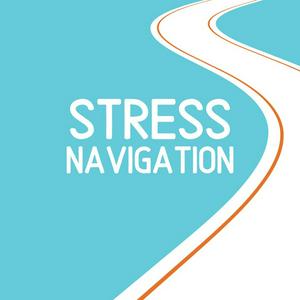
Ontvang de gratis radio.net app
- Zenders en podcasts om te bookmarken
- Streamen via Wi-Fi of Bluetooth
- Ondersteunt Carplay & Android Auto
- Veel andere app-functies
Ontvang de gratis radio.net app
- Zenders en podcasts om te bookmarken
- Streamen via Wi-Fi of Bluetooth
- Ondersteunt Carplay & Android Auto
- Veel andere app-functies


Stress Navigation
Scan de code,
download de app,
luisteren.
download de app,
luisteren.



